WELCOME REMARKS
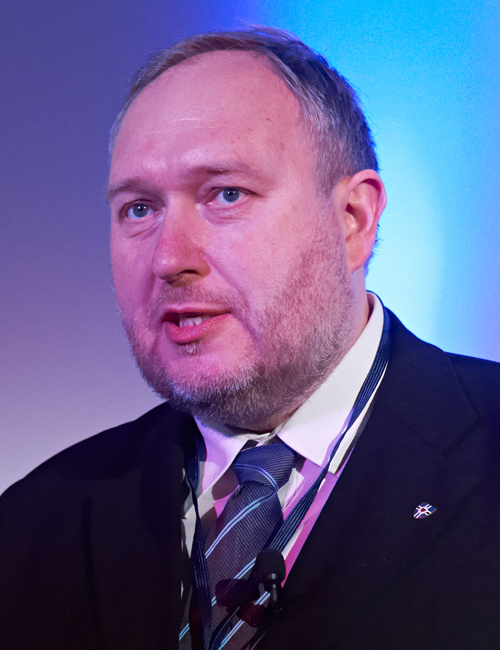
Chairman of the Board, Institute of Human Rights
An Estonian politician and geographer. Hansen graduated from the Department of Geography of the University of Tartu in 1985. From 1985-1990 he worked at the Institute of Applied Geography and from 1990-1992 at the Tallinn University of Technology. He was a member of parliament from 1995-2003. In 1994–1995 he was Minister of the Environment in Andres Tarand’s cabinet. Hansen is the member of the supervisory board of the Estonian Evangelical Lutheran Church Mission Centre and the chairman of the management board of the Estonian Institute of Human Rights.
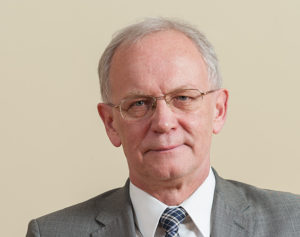
President of the Riigikogu
There are two kinds of people in politics: those who are in politics to get something done, and those who do something to get into politics. For me, the most important thing is to have the opportunity to get something done but I would not hasten to judge those who see politics as their profession. Personally speaking, I simply find the process more interesting than my own part in it.
Vt lisa: https://www.riigikogu.ee/en/parliament-of-estonia/composition/members-riigikogu/saadik/81aecc23-8483-48d6-9217-289fce86b1b5/EikiNestor/
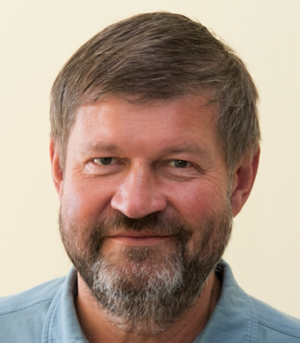
PhD, Member of Parliament, Host of the Conference
Has been a member of seven successive Parliaments since 1992. Nutt is a member of the Constitutional Committee and Foreign Affairs Committee. Delegation to the Organisation for Security and Co-operation in Europe Parliamentary Assembly, Chairman. Mart Nutt is a 1985 graduate of the University of Tartu with a degree in history and ethnography and entered a graduate degree programme at the same institution in 1988. In 2011, Nutt defended his Ph.D. dissertation at Tallinn University of Technology on the topic “Development and application in foreign relations of the competence of Estonian Parliament”. He has been a member of the supervisory board of the Estonian Institute of Human Rights since 2011. Mart Nutt was a member of United Nations Human Rights Council’s Darfur mission in 2007-2008 and member of European Commission against Racism and Intolerance in 1998-2013. He has the Order of the National Coat of Arms , 2nd Class.
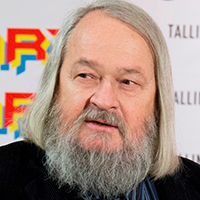
Estonian artist, architect and poet, Professor Emeritus of the Estonian Academy of Arts
Leonhard Lapin’s activities in the fields of Estonian art and culture have been extensive. He has worked as a fine artist and an architect, and spoken up about topics related to cultural theory and current events. He has written prose and poetry, and as an educator, has influenced many art students. He acquired an education in architecture at the State Art Institute of the Estonian SSR between 1969 and 1971. However, while he was still a student, he was attracted to fine art and performance art. Lapin can be considered to be the father of Estonian happenings, the flagship of avant-garde art. Internationally, it was his graphic art, which dealt with the merger of human and machine as a contemporary conflict between human and technology, that created a sensation. Lapin can also be considered to be a promoter of Estonian Pop Art. He and other innovatively minded young artists created a group call SOUP69, which copied examples of Western modern art and interpreted American-style pop culture into the local context. Since the 1990s, Lapin has been focused on his concept of ‘suprealism’, which comments on the impact the consumer society has on culture. Lapin is still active today and his works can be found in many famous art museums and private collections.
First Panel: Small states as equal partners
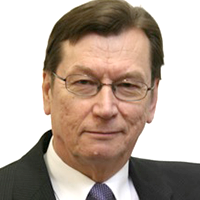
Foreign policy and arms control expert
Pasi Patokallio is a long-time Finnish diplomat who worked from 1974 to 2017 in the Finnish foreign service in the fields of international cooperation, security and arms control. He has served as the Finnish ambassador in Israel, Canada and most recently Australia (2013-2016). Previously his foreign service took him to the United States twice, as well as to Tokyo and Geneva. From 2009 to 2012, as a special envoy of the foreign ministry, Patokallio headed up Finland’s campaign to become a non-permanent member of the UN Security Council. Patokallio has an MA in international relations and has been a visiting researcher at Harvard University’s Weatherhead Center for International Affairs. The foreign policy positions that he has expressed in Finnish media have created a broad-based response and provoked discussion.
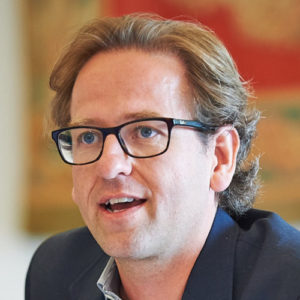
Danish diplomat, promoter of United Nations Sustainable Development Goals
Jens Ole Bach Hansen works at the Permanent Mission of Denmark at the UN. He is a recognized expert on United Nations Sustainable Development Goals (SDG) and in the international development coordination field. In 2014, he was recognized with the honorary title of European Young Leader. While serving in the Danish foreign service, Hansen has dealt with issues of cooperation and development aid, as well as headed up several development coordination programmes. However, he is focused primarily on achieving the United Nations Sustainable Development Goals. As a representative of Denmark, he has been able to participate in the discussions related to improving the efficiency of the organisation of the UN’s work. ÜRO Previously, he has worked as the deputy head of the Danish embassy in Jordan, and before that in the United Nations Relief and Works Agency for Palestine Refugees in the Gaza sector. Hansen has studied in Paris (political science) and at Roskilde, Columbia and Harvard Universities. He has a master’s degree in international relations.
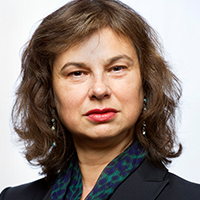
Director, Transatlantic Cooperation and Security Policy Department, Ministry of Foreign Affairs of Lithuania
Raimonda Murmokaitė is a long-serving Lithuanian diplomat who, before assuming the position of director of the Transatlantic Cooperation and Security Policy Department, was the Permanent Representative of Lithuania to the United Nations (2012-2017). During the same period, she also twice served President of the United Nations Security Council. At the Lithuanian Foreign Ministry, she has headed up the United Nations, International Organizations and Human Rights Department, as well as the Regional Bilateral Cooperation Department and been responsible for the policy planning unit. Previously, Murmokaitė was the deputy head of the Permanent Mission of Lithuania at the UN in New York, and worked at the Lithuanian Embassy in Rome.
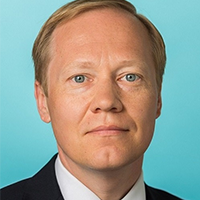
Estonian Undersecretary for Political Affairs at the Ministry of Foreign Affairs
Paul Teesalu is a very experienced Estonian diplomat, who before assuming the position of Undersecretary for Political Affairs at the Ministry of Foreign Affairs in 2017, headed up the ministry’s Political Department. He has been the Estonian Ambassador to Egypt, represented Estonia at the League of Arab States, and from 2013 to 2025, been Estonia’s first ambassador to the African Union. Previously, Teesalu headed up the Office of Security Policy and Office of International Organisations at the Ministry of Foreign Affairs. He was worked at the Permanent Mission of Estonia to the OSCE, and as Permanent Representation of the Republic of Estonia to NATO in Brussels. Teesalu graduated from the University of Tartu with a degree in theology and he is also an alumni of the Estonian School of Diplomacy.
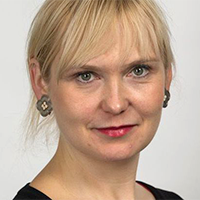
Journalist, foreign policy expert, Postimees
Evelyn Kaldoja heads up the foreign news desk at the Postimees newspaper, is a recognised foreign policy and security expert, and a welcomed speaker in the media and at conferences. She has worked at the Postimees since 2004. As a multifaceted journalist, Kaldoja has visited the military mission in Afghanistan, Central African Republic and Mali. She has also dealt thoroughly with foreign politics and was one of the few journalists to accompany Pope Francis on his recent trip to the Baltic countries. Kaldoja has degree in political science from the University of Tartu.
Second Panel: Do human rights have a future?
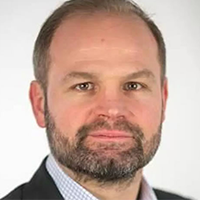
Expert on human rights and refugee issues, senior fellow at the European Stability Initiative (ESI)
John Dalhuisen has years of practical experience as an expert on human rights and refugee issues. After leaving Amnesty International (AI), he joined the international think tank called the European Stability Initiative (ESI) as a senior fellow. Between 2012 and 2017, was the Director of Amnesty International's Europe and Central Asia Programme, having previously coordinated the AI programme in the former Soviet Republics. He joined Amnesty International in 2007, and at time, he focused on researching discrimination in the European countries. From 2001 to 2006, he was the first Special Adviser to the first Council of Europe Commissioner for Human Rights. He was called to the Bar of England and Wales in 2007 and studied Philosophy at Edinburgh University and Humboldt University in Berlin.
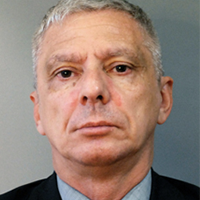
Political scientist, expert on populist and extremist right-wing political movements
Jean-Yves Camus is a respected French political scientist, and fellow at the French Institute for International and Strategic Affairs (IRIS), who is studying radical and populist political movements. Head of the Jean-Jaurés Foundation’s centre for the study of radical political movements. This is a unique research platform, the objective of which is to map the dynamics of extremist movements in Europe based on fields of activity, ideologies and activists. Camus has participated in the work of research groups dealing with extremist movements. And he has written or co-authored numerous publications. He often writes in the French press and appears on television. Previously Camus has also studied extremist left-wing movements and islamophobia. He has an MA from Sorbonne University and has furthered his studies in contemporary history at the School for Advanced Studies in the Social Sciences VÕI INSHS Institute for Humanities and Social Sciences.
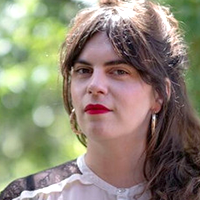
Political scientist, expert on international law
Nina Reiners is a postdoctoral fellow at the University of Potsdam and Fritz Thyssen Foundation scholar, who is currently working as a visiting fellow at the at the Graduate Institute Geneva. Her research topic is international law and her work she also focuses on the story of the creation and implementation of the UN human rights framework. Within the framework of her PhD studies, Reiners has also worked as a visiting fellow at the University of San Diego, and participating in many research projects at the United Nations in Geneva. She is participating in the Berlin/Potsdam Research Group called The International Rule of Law: Rise or Decline? In addition to the above, she has studied political science, English literature and public law in Giessen and Madrid.
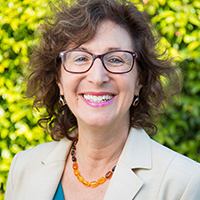
Expert on international law and human rights
Alison Brysk is the Mellichamp Professor of Global Governance at the University of California, Santa Barbara. She is productive scientist, educator and human rights expert. She has authored 10 books on human rights, including The Future of Human Rights, which was published this year. She has also co-authored or editing many other books. She has lectured and done research in Argentina, Australia, Ecuador, France, Spain, Sweden, the Netherlands, South Africa and Japan. She has also been a Fulbright Scholar in India and Canada and a fellow at the Woodrow Wilson Center in Washington. At the university, Brysk has taught courses on human rights, international relations, civil society and Latin American politics.
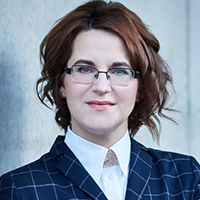
Estonian Gender Equality and Equal Treatment Commissioner
Liisa Pakosta has been working as the Gender Equality and Equal Treatment Commissioner since 2015. From 2009 to 2015, she was a member of the Riigikogu (Pro-Patria) and belonged to the Social Affairs Committee, the Education Committee, and the European Union Affairs Committee. She has been a member of the Human Rights Support Group, chairman of the Estonian delegation to the Parliamentary Assembly of the Council of Europe, which defends human rights, as well as a member of the Council’s Committee on Equality and Non-Discrimination. Previously she was a representative on the Tallinn City Council and been responsible for educational and ethnic issues in the city government. Pakosta graduated with an MA in Philosophy from the University of Tartu.

Attorney-at-law and legal scholar
Hannes Vallikivi is the President of the Estonian Bar Association, having been a member of the bar since 1996 and elected to the leadership in 2010. He is a member of the Tallinn Stock Exchange Listing and Surveillance Committee Tallinna börsi . Since 2009, Vallikivi belongs to the Banking Law Committee of the International Bar Association). He works at the Derling Law Firm. As a legal scholar, Vallikivi has published articles about international public law, business law and the history of law. He graduated cum laude from the University of Tartu with a Master of Laws degree.
Third Panel: Algorithms and human rights
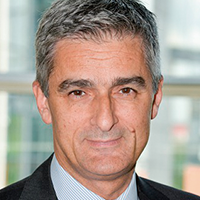
European Data Protection Supervisor
Giovanni Buttarelli assumed the position of European Data Protection Supervisor in late 2014. His term as the director of the EU's independent data protection authority is five years. The assignment of the EDPS is to ensure compliance with the personal data protection regulations in the EU’s institutions and agencies. The Data Protection Supervisor also monitors new technologies that may impact data protection. Previously, Buttarelli worked in the same organisation as the Assistant Supervisor of the same organisation. He has also been a Cassation judge in the Italian judiciary. And he has participated in many international projects and expert commissions dealing with the field of data protection.
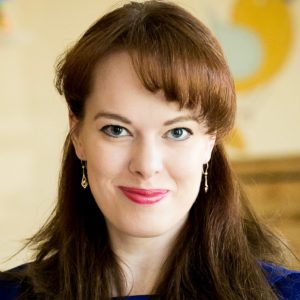
Legal Scholar and Researcher in IT Law
Helen Eenmaa-Dimitrieva received her Doctorate in Law (JSD) from Yale Law School. She is the Founder of the IT Law Research and Study Program at the University of Tartu and one of the most recognized representatives of this field in Estonia. She leads the law and economics track in the European Joint Doctorate in Law and Development (EDOLAD) and has a long experience in teaching moral and legal philosophy from Yale University. During her recent post-doctoral research at the European University Institute in Florence, Tilburg University in the Netherlands, and FGV in Rio de Janeiro, Brazil she has primarily focused on issues related to technology law, legal philosophy, and law & economics. In the latest papers, she discusses, under what conditions it is possible to create new markets with smart contracts; how trust plays a key role in differentiating contractual relationships; how law can be an embodiment of justice as well as a tool for achieving wellbeing at the same time; and what the fact that we live amid competing normative systems means for our obligations towards each other. Eenmaa-Dimitrieva has also worked as a lawyer at the European Parliament and the UN Security Council, and published papers in international law.
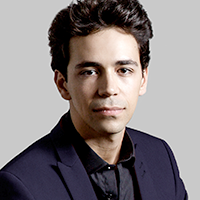
Business Development Director of the Psychometrics Centre at Cambridge University
Vesselin Popov works in the Psychometrics Centre at Cambridge University, which deals with researching people’s online behaviour and the implementation of the scientific research results in the economy, education, healthcare and social processes. His area of responsibility includes Apply MagicSauce software that is based on the data of more than 6 million users, and enables detailed psychological and demographic profiles to be identified based on people’s online behaviour. Under Popov’s leadership, the centre has made an in-depth study of the functioning of artificial intelligence in the virtual environment. One of the objectives of his work is to increase people’s awareness about their rights that are related to the fields of personal data protection, and the related education and psychological tests.
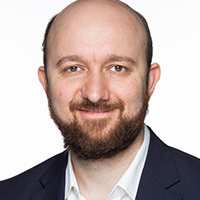
Expert on technology and human rights, Director of the Privacy & Sustainable Computing Lab
Ben Wagner is an Assistant Professor at the Vienna University of Economics and Business, and he is also the director of the interdisciplinary Privacy & Sustainable Computing Lab at the same university, which is focused on the promotion of ethical and efficient use of technology. His main focus is focuses on communications technology at the intersection between rights, ethics and governance, as well as human rights and information systems. Wagner is a member of the Centre for the Internet and Human Rights (CIHR); he participates in the educational network related to the data protection and implementation and is a member of the ENISA board. The list of his previous positions includes the German Institute for International and Security Affairs, Human Rights Watch and the European Council on Foreign Relations (ECFR). His academic career has taken him to the Technical University of Berlin, the University of Pennsylvania and European University Viadrina in Frankfurt. He holds a PhD in Political and Social Sciences from European University Institute in Florence.
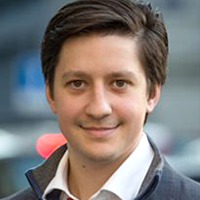
Deputy Director and Senior Fellow at The Lisbon Council
Since the beginning of the year, Luukas Ilves has been working at the Lisbon Council, a Brussels think tank, where he is focuses primarily on topics related to the cyber field such as the e-state and digital economy, and often dealing with them from the aspects of democracy and security. Previously, for almost 10 years, he worked as an Estonian state and EU official at the Estonian Ministry of Defence, the Estonian Information System Authority, and European Commission. During the last four years, he was the Counsellor for Digital Affairs at the Permanent Representation of Estonia to the EU. He is member of the expert commission of the Council of Europe dealing the points of contact between artificial intelligence and human rights. He graduated from Stanford University and belongs is a reserve office in the Estonian Defence Forces.
Fourth Panel: I Believe in Russia’s Future
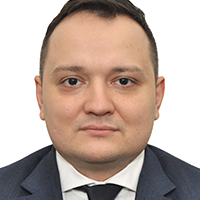
Attorney-at-law, defender of human rights
With his law practice, Sergei Badamshin has been one of the most famous defenders of human rights in Russia. He has acted as the defence attorney in many controversial and widely reported court cases, including the case of the Bolotnaya Square demonstrations, the accusations of treason against Svetlana Davydova, the Open Russia court case related to Mikhail Khodorkovsky, and the court case related to the director of the Tannhäuser opera that was performed in Novosibirsk. Badamshin was also involved with the case of Eston Kohver since, as an expert on the workings of the Russian legal system, the Estonia media often asked him for relevant comments and explanations.
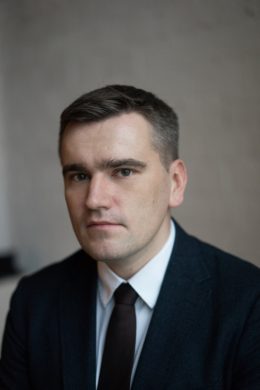
Social figure and activist
Aleksei Gaskarov is a spokesperson for Russian civil society, an environmental activist and leading figure of the opposition movement, whose previous activities have resulted in repressions by the authorities. Currently he is no longer as active as an opposition figure as he was, although he had not withdrawn from that arena entirely. He is still involved with an independent trade union advisory centre which recently initiated the campaign against increasing the retirement age in Russia.
Last year, he headed up one of Aleksei Navalny’s regional election headquarter. Gaskarov has been brought up before the court in connection with the protests related to the protection of the Himki forest near Moscow (2010) and participating in anti-government demonstrations on Bolotnaya Square (2012). In the latter case, Gaskarov was imprisoned for three and a half years. He was released in November 2016.
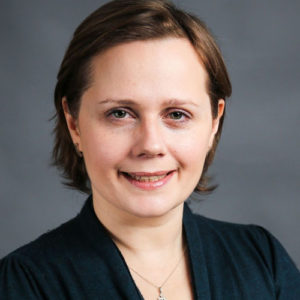
Journalist, co-founder of the Boris Nemtsov Foundation for Freedom
Olga Shorina works as journalist on the international desk at Deutsche Welle and as the co-founder of the Boris Nemtsov Foundation for Freedom in Bonn, is an active fighter for democratic principles. She has been a board member of RPR PARNAS, the association of parties created for the promotion of liberalism, democracy and human rights in Russia, and the press representative of Solidarity. Along with her political activities, she has continued her work in journalism in various media channels, including the radio station Echo Moskvõ, Ren-TV, City-FM radio and the web publication New Times.
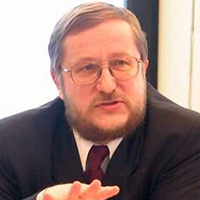
Estonian Ambassador in Finland
A seasoned diplomat and experienced radio journalist, Harri Tiido served as the Estonian Ambassador in Poland before being assigned to Finland. He has previously been the Deputy Secretary General for Security Policy at the Ministry of Foreign Affairs, and from 2008 to 2011, served as the Ambassador to Afghanistan residing in Tallinn. He has also been the Estonian Ambassador to NATO and the Estonian Permanent Representative to the European Union. Initially, Tiido was active for years as a radio journalist and was the Editor-in-Chief at Kuku Radio before entering the foreign service.
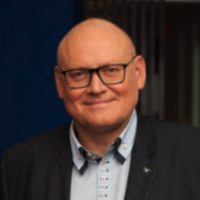
Expert on economics and public figure
Raivo Vare is an entrepreneur and active public figure, whose keen insight and comprehensive experience have made him one of Estonia’s most relevant opinion leaders. He has been the chairman of the council of the Estonian Development Fund, the vice-chairman of the council of the Estonian Cooperation Assembly, as well as a member of the Estonian President’s think tank, the University of Tartu Board of Governors and the councils of several enterprises. Vare has worked as the development director of Estonian Railways, as well as a consultant and a lecturer. In the 1990s, he was the State Minister of the transition government, later the Minister of Roads and Communications. He graduated magna cum laude from the Faculty of Law at the University of Tartu and received graduated cum laude from the MA programme at the Estonian Business School.
-
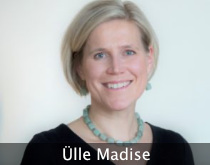 2019Parallel World Values and InterestsA clean environment and future of the globe, the possibility to preserve your privacy and option to disengage, which is necessary for the human psyche, are practical topics that apply to everyone.
2019Parallel World Values and InterestsA clean environment and future of the globe, the possibility to preserve your privacy and option to disengage, which is necessary for the human psyche, are practical topics that apply to everyone. -
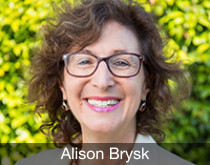 2018Conflicts of ValuesIn 2018, the panels discussed the topic of small countries as equal partners, whether human rights have a future, how much algorithms affect human rights and whether Russia has a future.
2018Conflicts of ValuesIn 2018, the panels discussed the topic of small countries as equal partners, whether human rights have a future, how much algorithms affect human rights and whether Russia has a future. -
 2017Are Human Rights in Freefall?The conference will address a number of today’s most important topics – terrorism, technological development, security, small states in a globalising world, culture and international cooperation – through a human rights perspective.
2017Are Human Rights in Freefall?The conference will address a number of today’s most important topics – terrorism, technological development, security, small states in a globalising world, culture and international cooperation – through a human rights perspective. -
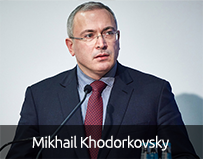 2016Black and White Values in a Polarizing WorldThe topics under discussion this year include a survey of public opinion on human rights among the Estonian citizens and foreigners living in Estonia, questions related to collective human rights and propaganda that have changed people’s understanding of basic rights.
2016Black and White Values in a Polarizing WorldThe topics under discussion this year include a survey of public opinion on human rights among the Estonian citizens and foreigners living in Estonia, questions related to collective human rights and propaganda that have changed people’s understanding of basic rights. -
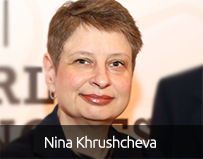 2015Human Rights in Changing TimesThe topics under discussion this year include case studies from the European Court of Human Rights, linguistic human rights, as well as the views of various generations of Russians today regarding their society.
2015Human Rights in Changing TimesThe topics under discussion this year include case studies from the European Court of Human Rights, linguistic human rights, as well as the views of various generations of Russians today regarding their society. -
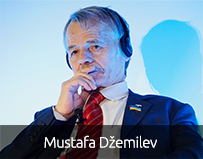 2014Dignity in the context of human rightsThis year the conference agenda included three keynotes and a panel discussion following each one: 1) guarantees under international law; 2) rights of native peoples; guarantees under international law; 3) the situation and future in Russia and Ukraine and human rights.
2014Dignity in the context of human rightsThis year the conference agenda included three keynotes and a panel discussion following each one: 1) guarantees under international law; 2) rights of native peoples; guarantees under international law; 3) the situation and future in Russia and Ukraine and human rights. -
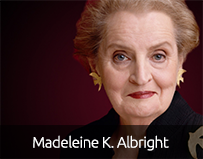 2013Human Rights and the Freedom to AssociationThis year’s annual conference, titled “Human Rights and the Freedom of Association” will analyse the global developments in human rights that have taken place in 2013.
2013Human Rights and the Freedom to AssociationThis year’s annual conference, titled “Human Rights and the Freedom of Association” will analyse the global developments in human rights that have taken place in 2013. -
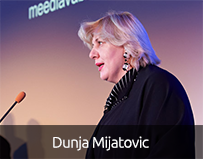 2012New Challenges of Human RightsOur conference examined human rights where the internet and the concept of security have altered dramatically our 20th century understanding of the core issues of human rights.
2012New Challenges of Human RightsOur conference examined human rights where the internet and the concept of security have altered dramatically our 20th century understanding of the core issues of human rights. -
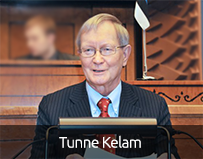 2011Dedicated to the 20th anniversary of restoration of independence of Estonia
2011Dedicated to the 20th anniversary of restoration of independence of Estonia


